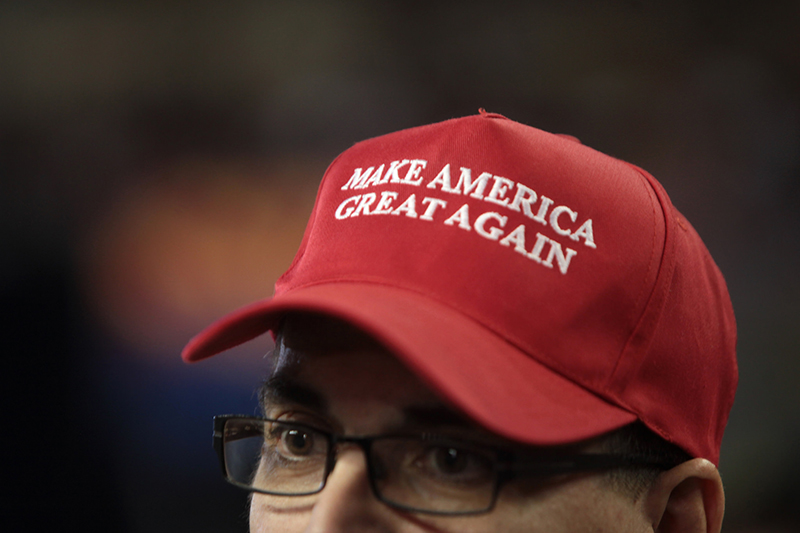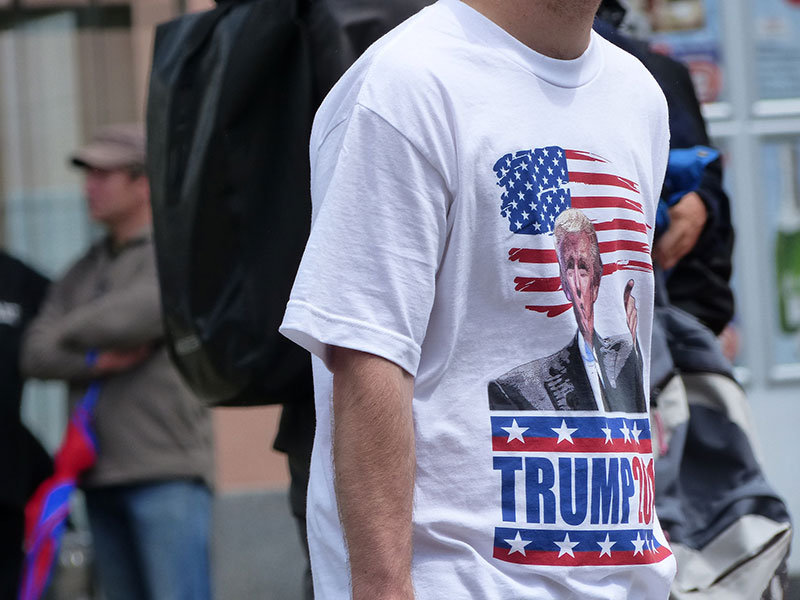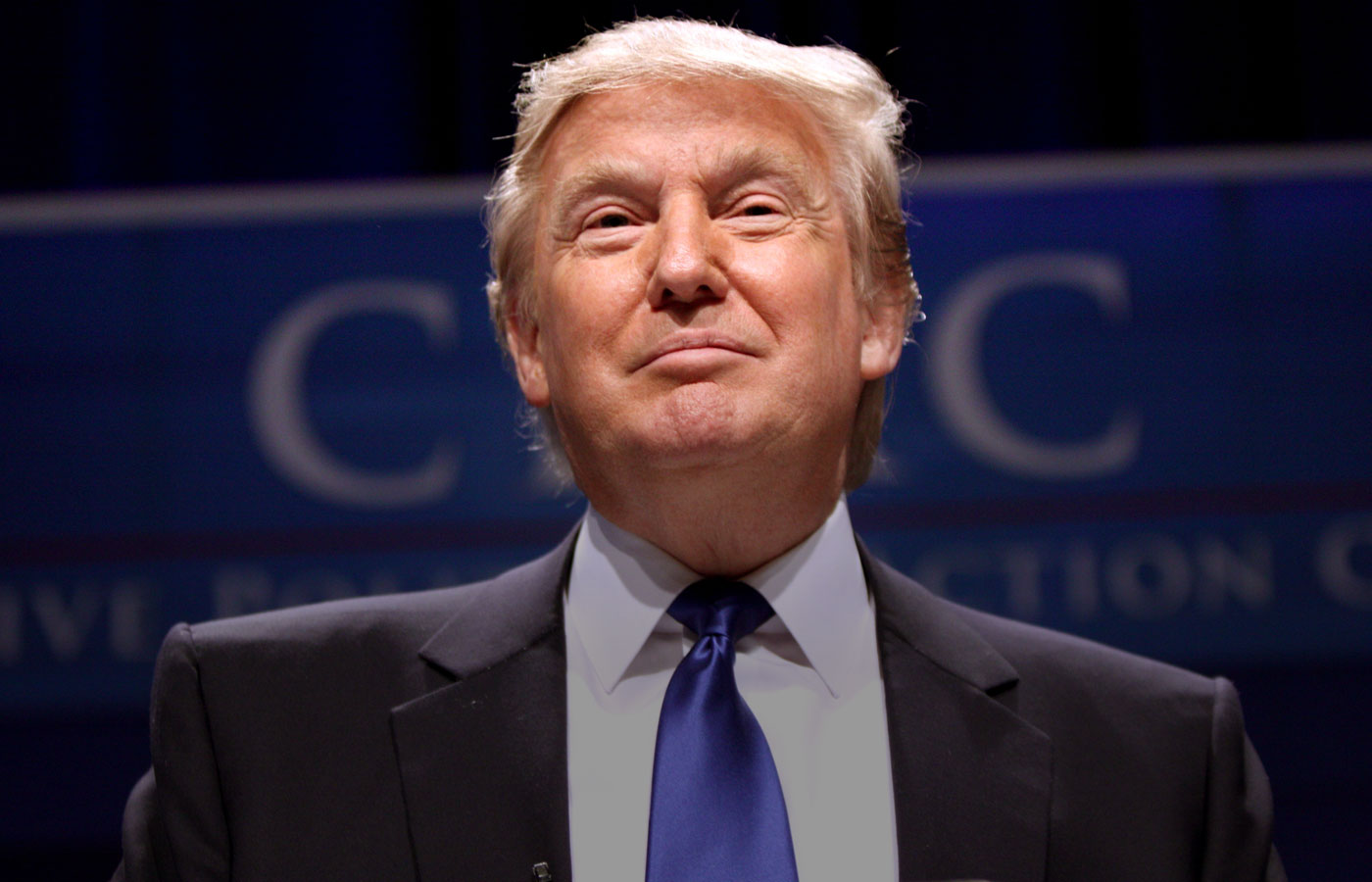The ‘first hundred days’ is a yardstick commonly used by pundits, politicians, and analysts to measure the effectiveness and impact of US presidents internationally and domestically. Historically, after the first hundred days, the president’s ability to guide key legislation through Congress lessens dramatically as attention turns to the next Congressional election cycle.
In evaluating President Donald Trump’s first hundred days, one should look also at what is now referred to as the ‘Trump Effect’.
In evaluating President Donald Trump’s first hundred days, one should look not only at his record internationally and domestically, but also at what is now referred to as the ‘Trump Effect’. This may be his most enduring legacy, as well as being a key factor in assessing the implications for churches and global mission of his first 100 days.
Mercurial foreign policies
Where President Barack Obama preferred subtle diplomacy and shunned direct military intervention, Trump from the start harangued perceived enemies, and did not hesitate to order strikes on Syria when the red-line of regime use of chemical weapons was crossed. He initially challenged China’s South China Sea military outposts and later threatened military action against North Korea. His reflex for open brinksmanship has only been matched by his mercurial penchant quickly to change direction when it suits his overall goal:
- Early praise for President Vladimir Putin turned to scorn over developments in Syria.
- Early censure of China gave way to praise of President Xi Jinping in hopes Xi might intervene with North Korea.
Trump’s penchant for swirling interventions has raised tensions, especially in the Middle East:
Syria
He has supported both Turkey and its enemies, the Kurdish People’s Protection Units (YPG), in their battle against ISIS. However, their mutual animosity long predates ISIS. YPG gains along the Turkish border threaten a full-scale conflict between both Turkey and YPG, which could exacerbate the Syrian conflict and draw in Russian and US forces. This could easily turn a toxic regional conflict into a war that threatens international peace.
Israel-Palestinians
Trump’s pick for ambassador initially cheered Prime Minister Binyamin Netanyahu and pro-Israel supporters in the US, but jitters have arisen due to his courting of PA President Mahmoud Abbas and expressed interest in re-starting peace talks.
Thus, Trump’s tactics have yet to be fully tested even if they have already set both the teeth of allies and enemies on edge. Trump also strained key alliances when he placed a travel ban upon several Muslim-majority nations and when he ceded leadership on climate change to China, instead focusing on untethering US domestic manufacturing restrained by Obama-era regulations.
Domestic policy frustrations
Trump has announced a tougher policy on immigration, and ramped up efforts to expel those in the US illegally. This flows from his ‘America First’ strategy that played well with blue-collar workers and those fearful of terrorist infiltration. Meanwhile, his pledge to build a wall to keep out immigrants soured relations with Mexico and others in the region and frustrated European states that have taken in significant numbers of refugees, even if it mollified European populists who themselves have made immigration an election issue.
Trump, like Obama before him, has leaned heavily upon Executive Action:
- He gutted Obama’s banking and industrial regulations that he claimed had been stifling economic growth.
- He ended Department of Justice investigations into institutional racism and rolled back employment and access rules adopted by Obama on transgender employment and recognition.
- More significantly, Trump placed a conservative justice known as a staunch defender of religious liberty into the Supreme Court. This should enable Christian businesses and institutions to retain religious standards and freedom of conscience in matters of business services, employment and tax exempt status that had been under threat in light of recent court decisions.
Nonetheless, in spite of having solid Republican majorities in both the Senate and House of Representatives, Trump has at the time of writing been unable to ratify any significant legislation. Indeed, the Republican Party (GOP) has proven just as frustrating to Trump as it was for Obama:
- His proposed border wall floundered as liberals viewed it as unconscionable and conservatives as unaffordable.
- The likely fate of his attempt to replace Obama’s Affordable Care Act with a viable alternative agreeable to both conservative and moderate factions of the GOP is uncertain.
- Trump has been unable to get the majority of his appointees to staff the Executive Branch approved and the budget is unlikely to pass unless the Mexican wall is dropped.
This legislative vacuum is ominous for both Trump’s legacy and the ability of the GOP to govern. Executive Action remains in place only while he is in office and is removed with the stroke of a pen. Legislation, on the other hand, sets policy until it is overturned by Act of Congress. Thus, the GOP has increasingly appeared to lack both vision and the ability to govern. Voters are likely to punish the party in the upcoming mid-term elections. Should Trump lose either house of Congress, he will effectively be a ‘zombie’ president who can do little more than posture during the final two years of his term.

Trump may have accomplished nothing legislatively, yet no one can deny his impact on the international and national stage politically and socially.
Trump Effect
Trump may have accomplished nothing legislatively, yet no one can deny his impact on the international and national stage politically and socially. In terms of personal character, Trump’s controversial claims against opponents both real and perceived often have proven distorted or outright fabrications.
Such misrepresentation at the highest levels of the US government led to an excoriating editorial by the editors of The Wall Street Journal, normally an ally of conservatives ideologically, who expressed outrage at his blatant falsehoods. In their view, he had besmirched both the presidency and the integrity of the US internationally. They pointed as well to the ill-advised and perhaps illegal communications of Trump officials with Russian officials that led to tension between the president and the CIA, FBI, and US military intelligence agencies.
Trump’s behaviour toward the opposite sex has appeared to be quite circumspect since his election. He has been very successful in projecting devotion and loyalty to his family, including his wife and children. However, his previous lewd personal behaviour and comments about women that surfaced during the campaign have generated unease and concerns that these character flaws might surface once again.
Trump’s constant use of Twitter has been petty or tawdry at best when challenging critics or settling minor affronts. His outright attack on major news outlets and individual members of the press has generated an unprecedented level of acrimony and partisanship. It led The Washington Post to change its masthead to read ‘Democracy Dies in Darkness’ suggesting that the Fourth Estate was under immediate threat from Trump. Furthermore, the shrill rhetoric of the president and the political parties is now reflected in the press as supposed reporting increasingly channels partisan ideological views.
International impacts
The implications of these first hundred days are difficult to discern yet:
- On the one hand, he has accomplished very little; and most likely even that ability will diminish with each passing day.
- On the other hand, his presence and populism will catalyse charismatic leaders who trade on nativist ethnic biases and anti-immigrant bigotry.
His appeal to brinksmanship could easily lead to a dangerous miscalculation by him or Pyongyang to launch a pre-emptive strike that could ignite war on the Korean peninsula and possibly draw China and the US into conflict. However, this nightmare scenario seems to have grabbed Beijing’s attention, and it is now actively putting pressure upon North Korea to stand down.
Domestic impacts
The Trump presidency, much like that of Obama, will likely fail legislatively. This will further erode effective governance. The US Constitution was designed to nurture and depend on realistic compromise and moderation. What made presidents Lyndon Johnson, Ronald Reagan, and Bill Clinton effective was their ability to ‘reach across the aisle’ to forge legislative compromises with their adversaries that benefited the nation as a whole. The tragic legacy of both the Obama and now Trump administrations is that, apart from use of Executive Action, they were rendered legislatively dysfunctional due to an inability to forge compromise.
This dysfunction has led to the ascendancy of the Supreme Court and the consequent political infighting over proposed justices to fill vacant seats. With legislative paths blocked, judges are increasingly viewed not as disinterested referees, but as Platonic Guardians who by imaginative interpretation and artful polysemy take on the mantle of governance. Nonetheless, such moves represent not the ‘rule of law’ but a ‘rule of judges’ never envisioned by those interested in representative democracy.

The deepening partisan ideological divide in all sectors of US society will mean that governance will most likely lurch from one extreme to another.
Implications for churches and mission
The deepening partisan ideological divide in all sectors of US society will mean that governance will most likely lurch from one extreme to another. This will have major ramifications for the church and mission.
Evangelical leaders were, and continue to be, deeply divided over Trump’s election and presidency. That said, it has been widely reported that nearly 80 percent of self-identifying White Evangelicals voted for Trump; as such, his presidency, both merits and demerits, will be laid at their door. This means that should the presidency or Congress become controlled by the Democratic Party, it is quite likely that the government will become decidedly anti-Evangelical.
There was a time when Evangelicals and their views were equally represented in both parties; that is no longer true. Further, as a result of championing Trump, his personal and political character flaws have hurt the perception of Evangelical Christians. This is particularly true among African- American and Latino Christians who are dismayed by the hypocrisy of those who preach ‘family values’ but voted for a man who exuded moral decadence.
Internationally, Trump’s ‘America First’ does not bode well for mission:
- The natural tendency of governments is to engage in tit for tat—to refuse visas to Americans if the US bans travel of their citizens to the US.
- Emphasis on ‘America First’ does little to foster the international goodwill that missions should communicate.
- The prestige of all citizens of a nation is affected by the person who is their chief representative. The fact that Trump is not respected internationally will affect the reputation of his countrymen and countrywomen.
Finally, even among White Evangelicals, Trump is not generating confidence. His rhetoric was far grander than what he has actually been able to deliver. Many believed that his brash self-confidence would allow him to succeed where others have failed. However, of late even Trump’s self-belief has begun to wane as he has had to admit that the presidency has been far more difficult than he imagined.
Photo credits
Feature image from ‘Donald Trump‘ by Gage Skidmore (CC BY-SA 2.0).
First image is from ‘Make America Great Again hat‘ by Gage Skidmore (CC BY-SA 2.0). Second image is from ‘Trump T-shirt‘ by Gage Skidmore (CC BY-SA 2.0).

